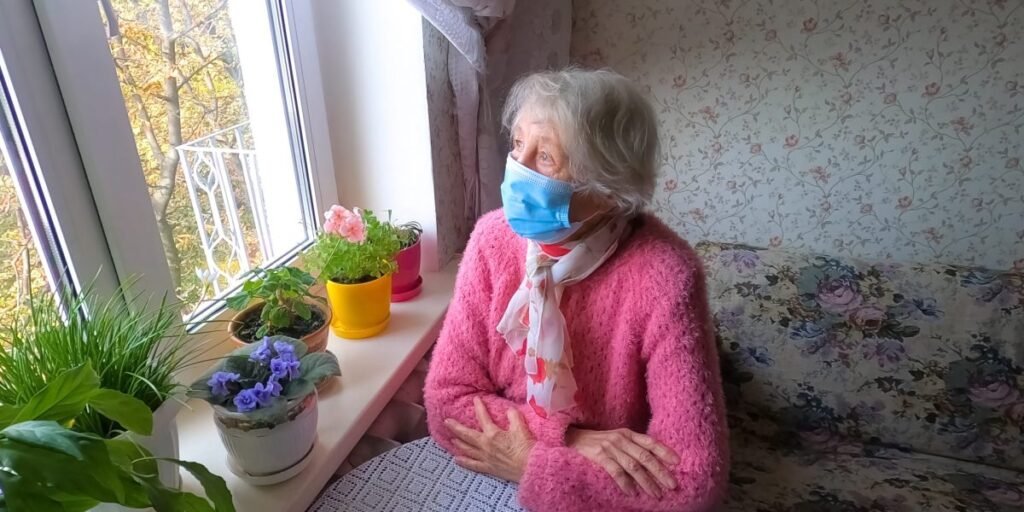
U.S. and Chinese government officials knew as early as February 2020 that the emerging novel coronavirus that causes COVID-19 had already been well-adapted to humans – an early signal not only that it would spread efficiently, but also that it may not have emerged at the Wuhan wet market.
Recently released chat messages indicate that former National Institute for Allergy and Infectious Diseases Director Anthony Fauci was informed by early February 2020 by then-China Center for Disease for Disease Control and Prevention Director George Gao that the emerging novel coronavirus had already “adapted to human hosts well.”
SARS-CoV-2, the virus that causes COVID-19, first emerged in humans almost preternaturally suited to spread in humans without having to evolve in the population much, some scientists say. Some scientists say this points to an emergence of the virus earlier than the December outbreak at the Huanan Seafood Wholesale Market, and that the virus became well adapted by circulating cryptically in people, or that the virus that was adapted to human cells in a laboratory using a common technique called serial passage in which viruses evolve through sequential infections in animals or cells. In part because of the implications for the origins of the virus, discussion of the “preadapted” nature of the virus was been mired in controversy.
The new messages suggest that two of the world’s most prominent scientists were privately discussing this topic in the pandemic’s earliest days — though its implications were not discussed much publicly until they were raised months later by a far less prominent scientist, Broad Institute molecular biologist Alina Chan.
Fauci and Gao spoke in “early February,” according to messages obtained and recently released by the House Select Subcommittee on the Coronavirus Pandemic. The messages were exchanged on WeChat, a Chinese instant messaging and social media app.
The call was arranged by Ping Chen — who served as a representative of Fauci’s NIAID in the U.S. Embassy in Beijing. Chen had just returned to National Institutes of Health headquarters in Bethesda, Maryland, by the time the pandemic began.
Another message from Chen to Gao apparently reflecting back on the call appears to shed light on their discussion.
“Dear George, as the world is dealing with the highly transmissible SARS-2 delta variant, I have never forgotten what you said to ASF on the phone call in early Feb 2020,” Chen wrote in apparent reference to Anthony Stephen Fauci. “You said although we don’t know much about the new coronavirus one thing you do know is the new virus ‘adapted human host well.’”
“I remember it,” Chen continued. “Now your early observation has proven to be true. Each variant emerges as highly transmissible virus, first was alpha, then alpha becomes delta and transmission goes up and widely spread.”
Other messages establish that the “George” addressed in the message was Gao Fu, known in the West as George Gao, and that “ASF” referred to Fauci, Chen’s superior at the NIAID, for whom she arranged the call with Gao in a series of messages in the final week of January.
WeChat messages obtained from Chen were published last month by the committee as part of the supplemental materials accompanying an investigative report of COVID-19 pandemic failures.
Chen and NIAID declined to comment. Fauci and Gao did not respond to emailed requests for comment.
Competing papers
In the pandemic’s earliest days, though Fauci was apparently privy to the “well adapted” nature of the virus — this information was not relayed to the public.
It was not until approximately three months later, on May 21, 2020, that this alarming characteristic of the novel coronavirus, starkly different than the SARS virus that circulated from 2002-2004 , first generated widespread discussion and debate in the U.S. with the publication of a preprint titled “SARS-CoV-2 is well adapted for humans. What does this mean for re-emergence?”
“SARS-CoV-2 appeared without peer in late 2019, suggesting that there was a single introduction of the human-adapted form of the virus into the human population,” the preprint read.
Unlike the original SARS virus, which picked up dozens of beneficial mutations in the early days of infecting people, SARS-CoV-2 only had a single beneficial mutation. The virus could have circulated undetected or have been adapted to human cells in a laboratory, the authors postulated.
“Even the possibility that a non-genetically-engineered precursor could have adapted to humans while being studied in a laboratory should be considered, regardless of how likely or unlikely,” it stated.
The conclusion made headlines, but many virologists expressed skepticism. Chan in particular, who was vocal on Twitter, eventually became the target of opprobrium from prominent virologists, who dismissed concerns about a lab accident as the makings of a conspiracy theory.
Critics included authors of an earlier March 2020 publication in Nature Medicine titled “The proximal origin of SARS-CoV-2.” While this paper acknowledged the virus was well adapted to humans, it described this feature as assuredly natural because it did not bind to human cells in an “ideal” way predicted by computational models. Thus it did not call much attention to the preadapted nature of the virus.
The paper was viewed millions of times within days and made the authors go-to experts in the media on the novel coronavirus.
“The thing is ‘Proximal Origin’ did imply that the virus was preadapted, but because they ruled out a lab origin they were celebrated. Meanwhile my preprint that said the virus was pre-adapted did not rule out a lab origin and was attacked,” Chan told U.S. Right to Know.
It wasn’t until Freedom of Information Act requests and lawsuits revealed Fauci’s emails that the public became aware of his involvement with the conception of that paper and of the fact that he and other influential scientific funders, National Institutes of Health Director Francis Collins and Wellcome Trust Director Jeremy Farrar, were privy to early drafts.
More FOIAs, as well as congressional subpoenas, revealed the authors also found the virus was well adapted to humans as compared to SARS and had expressed doubts about their own public theory that it did not bind to human cells in an ideal way.
“It is indeed striking that this virus is so closely related to SARS yet is behaving so differently. It seems to have been preadapted for human spread since the get go. It’s the epidemiology I find most worrying,” coauthor University of Sydney virologist Eddie Holmes said in a message on February 10, 2020.
Public statements vs. private discussions
Fauci has never mentioned a call with Gao on this subject publicly. He has dismissed a lab origin as improbable and been critical of Chan.
In an interview earlier this year, Fauci described Chan as “a pretty fuzzy person” on the COVID-19 origins question.
In Newsweek coverage of the preprint in 2020, the outlet picked up comments by Fauci in which he argued evidence “very strongly” pointed to natural evolution. The comments were presented as a counterweight to the credence the preprint lent to the lab leak theory.
“If you look at the evolution of the virus in bats, and what’s out there now is very, very strongly leaning toward this [virus] could not have been artificially or deliberately manipulated—the way the mutations have naturally evolved,” Fauci had said. “A number of very qualified evolutionary biologists have said that everything about the stepwise evolution over time strongly indicates that it evolved in nature and then jumped species.”
In citing “very qualified evolutionary biologists,” Fauci was likely referring to the “Proximal Origin” paper.





